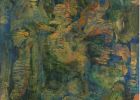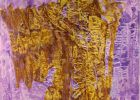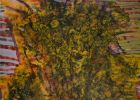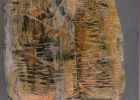The Novel Called “Science” / Der Roman der Wissenschaft
In these two essays that were originally written for the French journal Crises, Flusser discusses the relationship between science and fiction. Both texts are preceded by an epigraph that reappears in Angenommen (1989), Isaac Newton’s “Hypotheses non fingo.” This means that they were probably written in the late 1980s within the context of Angenommen. The history of science can be conceived as a powerful drama, an irresistible constantly swelling river flowing towards the all-encompassing ocean of knowledge. But this history can also be described as a series of answers to fundamental questions: what for, why and how. It has become increasingly clear that the only important questions are not final or causal questions, but formal questions. The universe of scientific discourse is a fiction, a game, which is ultimately an absurd game. “Newton was still able to say that he did not invent his hypotheses freely. Such metaphysical faith in a concrete reality which sustains science has become untenable ever since Kant. […] An inversion of the vectors of significance is in the making: no longer does scientific discourse mean the world, but the concrete world now means the universe of formal discourse. […] Such a view shows science to be a novel in two different meanings of that term: Its history is a novel of questioning, and its result is the transformation of concrete reality into science fiction.”
Dear Flusser – Dear Don. Letters from 1973 to 1983
The letter exchange between Vilém Flusser and Donald L. Stacy started in 1973 and ended in 1983. Intrigued by an article Flusser published in the US journal Main Currents of Modern Thoughts, Stacy started a conversation that proved influential for both participants. It lead to a friendship that was first only intellectually and later also emotionally engaging. By being a constant challenge to each other, the „author of words“ and the „painter of images“ enjoy disagreeing on art, knowledge, truth, reality, editing and friendship. Their discussion of the relationship between images and words is deeply intertwined and sometimes concurrent with a discussion of their personalities. Their self perception and perception of each other, together with their reflection on the friendship itself turn the whole conversation into a fascinating set of documents on personal and creative influences.



